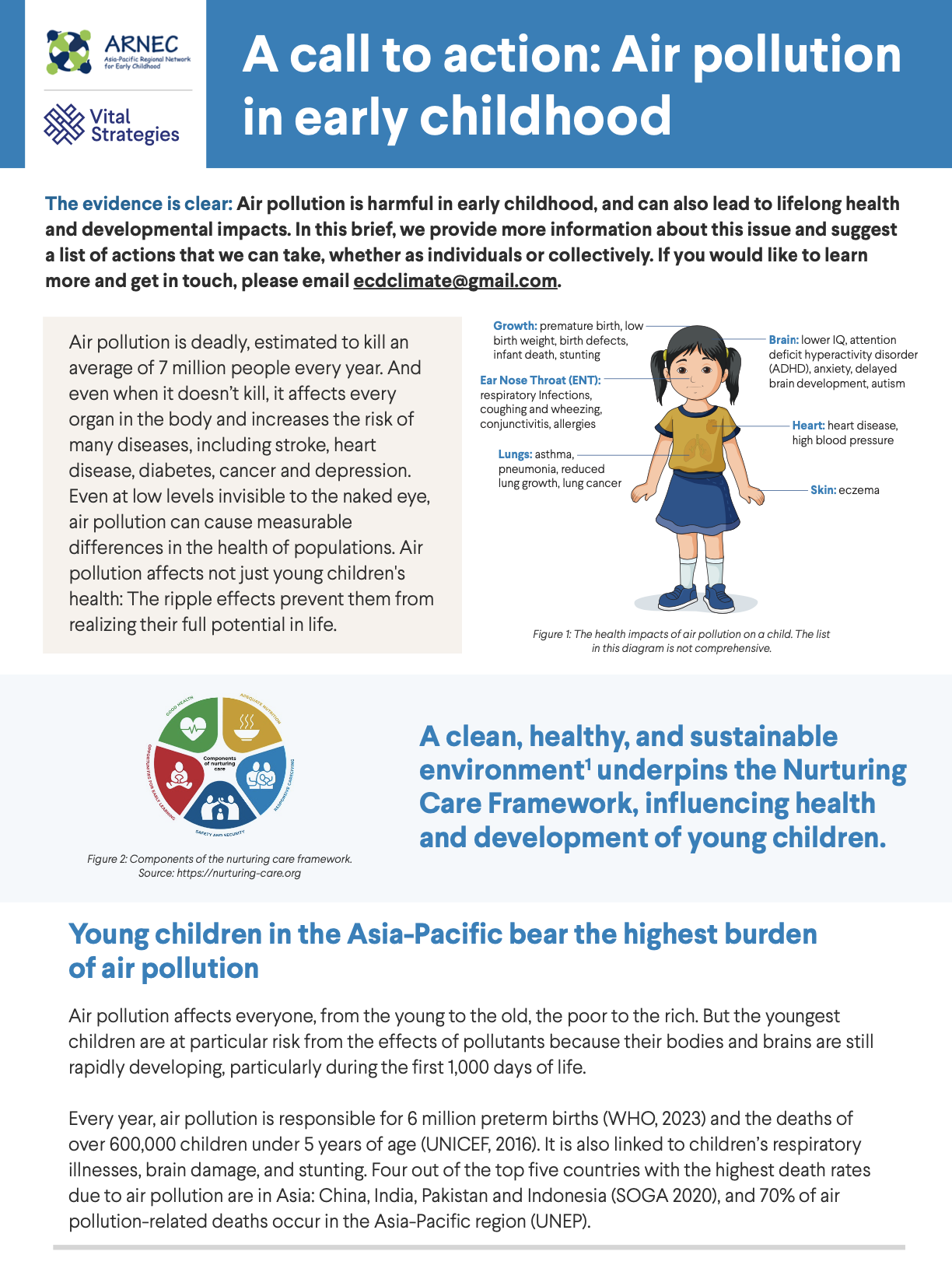Every year, air pollution is responsible for the deaths of over 600,000 children under 5 years of age (UNICEF, 2016). Air pollution is especially harmful to young children as their bodies and brains are still developing, and they lack the natural defence mechanisms to fend off harmful pollutants. They also breath up to five times faster than adults, and with every breath, take in more air per unit of body weight than adults. Exposure to air pollution in early childhood can lead to lifelong health and developmental impacts, including reduced lung capacity, stunting, lower IQ and depression.
Vital Strategies has partnered with the Asia-Pacific Regional Network for Early Childhood Development (ARNEC) to publish this advocacy brief to highlight the specific risk that air pollution poses to young children, and a list of actions that we can all take to reduce this risk.
This publication is the first in a series and part of a resource kit on Climate and Environmental threats on early childhood development. To learn more, please email ecdclimate@gmail.com
Download the full advocacy brief (10 pages)
Download the call-to-action only (2-pager)
Recent Abstracts
Childhood Lead Exposure Prevention: Assessment Of Blood Lead Surveillance Capacity Maharashtra, India
UK PACT : Enhancing Sustainable Urban Mobility in Surabaya and Makassar
Stage at diagnosis and survival by stage for the leading childhood cancers in…
Short-term association of particulate matter and cardiovascular disease mortality in Shanghai, China between…
Information About New Federal Regulations for Opioid Treatment Programs (OTPs)
Centering Country Ownership and Leadership: The Data for Health Initiative’s Approach
Mass Media Campaigns
Tobacco Imagery in Movies and Web Series Streaming in India and Their Compliance…
Data for Health: Advancing Gender Equity
The Index of Tobacco Control Sustainability
